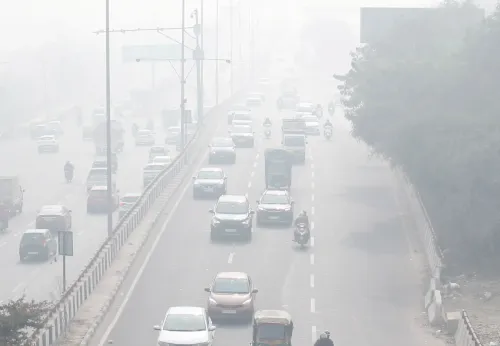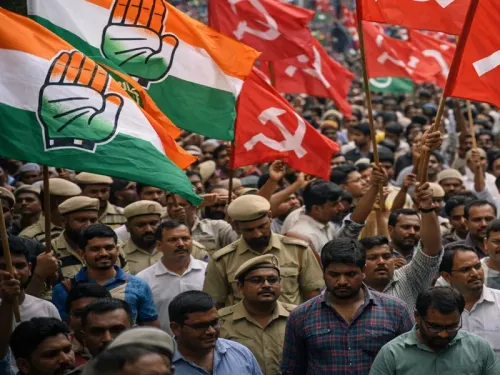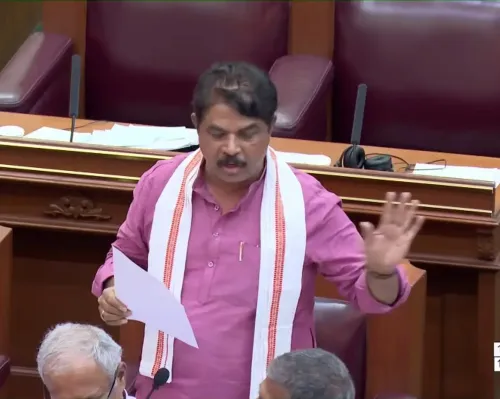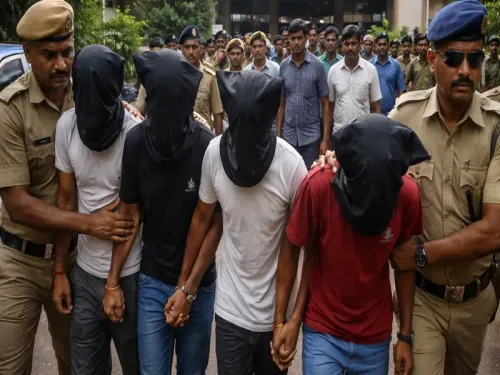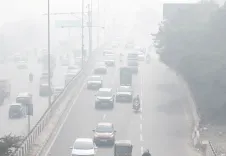Does the MSPS Bill Threaten Our Fundamental Rights?
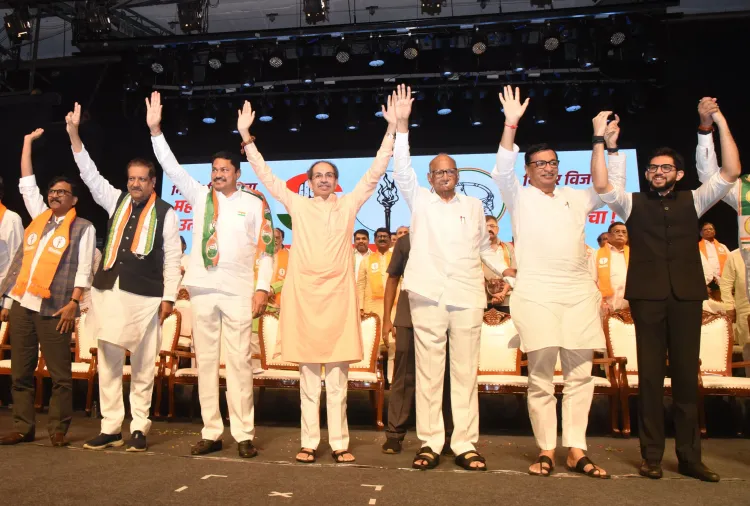
Synopsis
Key Takeaways
- The MSPS Bill seeks to centralize executive powers.
- Opposition parties view it as a tool for political repression.
- The bill incorporates controversial provisions from existing laws.
- Concerns about potential abuse of power are prevalent.
- It reflects a closed legislative process lacking public input.
Mumbai, July 11 (NationPress) Opposition factions expressed serious concerns on Friday, alleging that the Maharashtra Special Public Safety (MSPS) Bill, 2024, is a calculated effort by the state government to centralize and validate extraordinary executive powers under the guise of public safety.
They pointed out that while some procedural amendments were introduced based on the Joint Select Committee's recommendations, the core framework of the bill remains oppressive, vague, and susceptible to misuse.
In a dissent letter to the Chairman of the Maharashtra Legislative Council, opposition parties, including Shiv Sena UBT, Congress, and NCP SP, asserted that the bill does not serve public safety; rather, it acts as a legal framework for political suppression.
“It incorporates the most troubling aspects of the UAPA, NSA, and AFSPA, without a focus on national security, and applies them to civil dissent, democratic expression, and opposing groups. The grave issues raised by opposition representatives, civil society, and constitutional experts have been disregarded,” they remarked.
This opposition statement followed the state assembly's passage of the bill via voice vote. Chief Minister Devendra Fadnavis clarified that the legislation is not intended to harass anyone, but rather targets individuals who incite public unrest against the Indian Constitution. He emphasized that no actions would be taken against journalists or political leaders and that the law aims to protect the nation and its constitution from those who seek to undermine it.
“With the UAPA 1967 (amended in 2008, 2019), Indian Penal Code (IPC), 2023, and MCOCA, 1999 already in effect, which provide extensive and harsh powers to the state and police, is there truly a necessity for another law?” questioned the opposition.
“The proposed MSPS Bill 2024 should be examined alongside existing laws such as the UAPA 1967 and BNS 2023, which are central regulations designed to combat terrorism and organized crime. Together with MCOCA, 1999, a state statute, they already offer a comprehensive legal structure to address activities deemed 'terrorist or separatist.' These laws grant significant authority to the state and its police to intervene against individuals engaged in actions threatening national security, integrity, or sovereignty,” the opposition parties asserted.
They expressed that the integration of harsh provisions in Maharashtra's criminal statutes, particularly in the absence of essential safeguards, raises substantial concerns about potential abuse.
“In the present atmosphere of intolerance towards any political or constructive dissent against governmental policies, and the misuse of power by investigative agencies, this bill heightens the likelihood of arbitrary state actions and further jeopardizes fundamental rights,” they contended.
Moreover, the opposition stated that the joint select committee functioned not as a platform for democratic dialogue but as a procedural formality utilized to stifle public dissent and legitimize previously determined legal outcomes.
“The final version of the bill reflects this closed-off process: a document rife with constitutional inaccuracies, ideological targeting, and structural biases, which, although claimed to be a measure 'for public safety,' operates as a tool for political oppression,” the opposition concluded.


